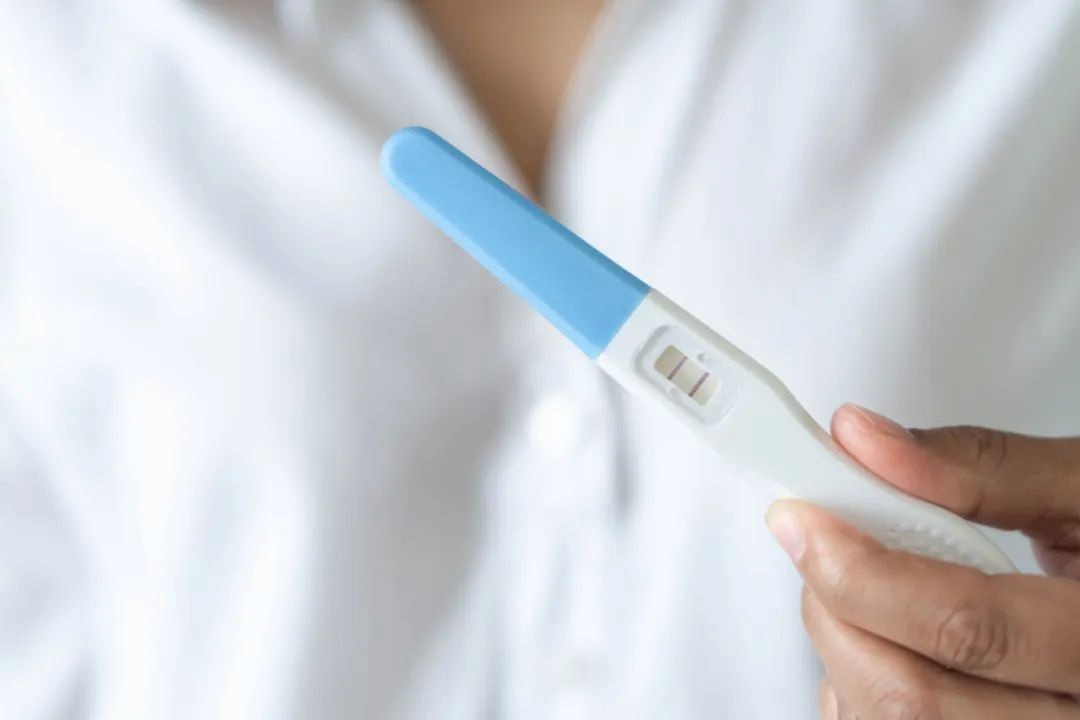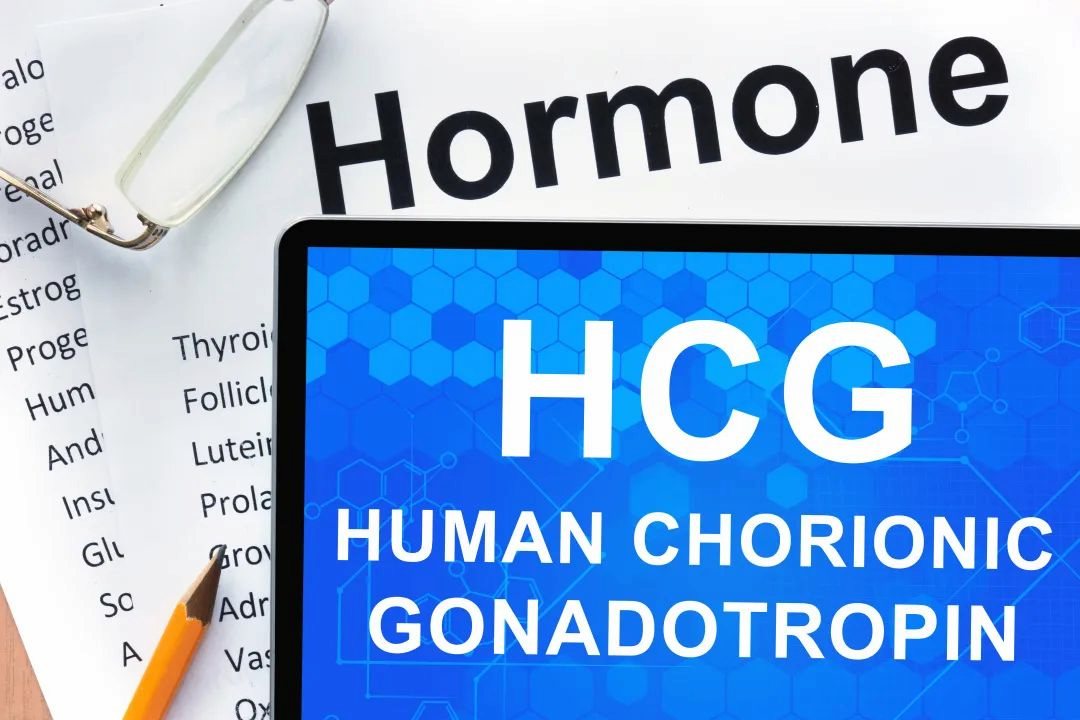Scientific Interpretation and Management Strategies for Low Progesterone and Poor HCG Doubling in Surrogate Mothers
Clinical Case: Emily’s Pregnancy Confusion
Emily, 32 years old, used to have regular menstruation (35 days cycle, 5-7 days menstrual period), but now she had menopause for 45 days, and her urine pregnancy test was weakly positive for three consecutive days. The blood test results show HCG 1020 mIU/ml and progesterone 75 nmol/mL (about 23.8 ng/mL). Faced with this result, Emily is concerned about the outcome of the pregnancy and inquires about the need for fetal preservation.

I. Physiologic significance of HCG and progesterone
- The core role of HCG
Maintaining luteal function: HCG stimulates the ovarian corpus luteum to transform into the gestational corpus luteum, which continues to secrete progesterone until the formation of the placenta.
Immunomodulation: Suppressing the maternal immune system’s attack on the embryo, ensuring safe embryo implantation.
Embryonic development support: promotes the formation of the placenta and the establishment of maternal and fetal blood circulation.
- Pregnancy protection mechanism of progesterone
Stabilizing the endometrium: Ensuring the endometrium’s tolerance and providing a suitable environment for the embryo to settle.
Inhibit uterine contraction: reduce the excitability of uterine smooth muscle and prevent the risk of preterm labor.
II. Clinical value and limitations of HCG doubling test
- Doubling criteria and significance
Early pregnancy (before 6-7 weeks gestation): HCG should increase 1.6-2 times every 48 hours. Any rate lower than this suggests abnormal embryonic development or risk of ectopic pregnancy.
Middle to late pregnancy: HCG growth rate slows down and needs to be combined with ultrasound to assess fetal structural development.
- Potential causes of poor doubling
Embryonic factors: chromosomal abnormalities, defective trophoblast function (more than 60% of cases).
Maternal factors: luteal insufficiency, abnormal thyroid function, or insufficient blood supply to the uterus.
Ectopic pregnancy: about 17% of ectopic pregnancies have normal HCG doubling in the early stage, and ultrasound is needed to confirm the diagnosis.
III. Prediction of pregnancy outcome by combined progesterone and HCG assessment
- insufficient blood supplyinsufficient blood supply
Low progesterone group (<15 ng/mL): incidence of adverse pregnancy outcomes (miscarriage, ectopic pregnancy) up to 68.29%.
Moderate to high progesterone group: significantly lower risk, but still need to monitor HCG dynamics.
- knock-on effects of poor HCG doubling
Early pregnancy: in case of poor HCG doubling and low progesterone, the risk of miscarriage increases to 73.24%.
Mid and late complications: increased risk of preterm labor, fetal growth restriction, and gestational hypertension.

IV. Management strategies for low progesterone and poor HCG doubling in surrogate mothers
- Initial assessment and monitoring
48-hour retesting of HCG and progesterone: to confirm the trend of increase and exclude laboratory errors.
Ultrasonography: vaginal ultrasound after 6 weeks of gestation to confirm the location of the gestational sac, fetal heartbeat and embryonic activity.
- Targeted interventions
A. Luteal insufficiency
Progesterone supplementation: oral dextroprogesterone (10 mg bid) or vaginal progesterone gel (8%) until 12 weeks of gestation.
Lifestyle adjustment: reduce physical activity and increase bed rest time.
B. Abnormal embryonic development
Observation of natural elimination: If there is no fetal heartbeat on ultrasound and HCG continues to fall, termination of pregnancy is recommended to avoid blind fetal preservation79.
Genetic counseling: embryo chromosome analysis is recommended for those with repeated miscarriages.
C. Ectopic pregnancy screening
Emergency treatment: Immediate surgery or medication (methotrexate) is needed after diagnosis to prevent tubal rupture.
V. Nutrition and psychological support
- Diet optimization
High protein diet: Eggs and fish to supplement essential amino acids and support placental development.
Vitamin E and B6: nuts, green leafy vegetables enhance luteal function and relieve pregnancy sickness.
- Psychological adjustment
Professional counseling: Anxiety may exacerbate uterine contractions and participation in pregnancy counseling is recommended.
Family support: Participation of partner in labor checkups and joint decision-making to reduce psychological pressure.
VI. Case Insights: Sophia’s experience of successful birth control
Sophia, 30 years old, had a delayed doubling of HCG in early pregnancy (1.3-fold increase in 48 hours) and progesterone of 18 ng/mL. after confirmation of intrauterine pregnancy by ultrasound, progesterone injections (20 mg/day) and strict bed rest were used. A repeat examination at 8 weeks of gestation showed normal fetal heartbeat, and the medication was gradually discontinued after 12 weeks of gestation, resulting in the delivery of a healthy baby boy at full term. This case emphasizes the importance of individualized assessment and early intervention.
VII. Conclusions and clinical recommendations
The synergistic monitoring of progesterone and HCG is the gold standard for assessing the prognosis of pregnancy, and abnormalities of a single indicator should be combined with clinical manifestations to make a comprehensive judgment.
Avoid excessive medical treatment: HCG cannot be supplemented by drugs, and blind use may cover up the problem of embryo quality.
Regular checkups: hormone levels should be monitored every 48-72 hours in early pregnancy, and ultrasound and blood pressure management should be strengthened in the middle and late stages of pregnancy.
Conclusion
The management of pregnancy in surrogate mothers with low progesterone and poor HCG doubling requires a balance between medical precision and humanistic care. Through scientific assessment, personalized intervention and comprehensive support, most cases can achieve a satisfactory outcome. Emily’s case reminds us that finding a balance between data and humanity is the core value of modern reproductive medicine.
相关推荐
- International Fertility Experts Reveal 4 Golden Rules for Ovarian Function Assessment
- The optimal range for egg retrieval in IVF: 8–15 eggs yield the highest live birth rate
- Why do fertility doctors always advise you to do IVF before it’s too late?
- Scientific Selection Guide for Natural Fertilization vs IVF
- Deadly Warning of Fetal Motion Disappearing at 38 Weeks|International Center for Perinatal Medicine
Search within the site
Surrogacy News
Hot Tags.
Georgia Surrogacy Services,Legal IVF Hospital,Global Fertility Agency